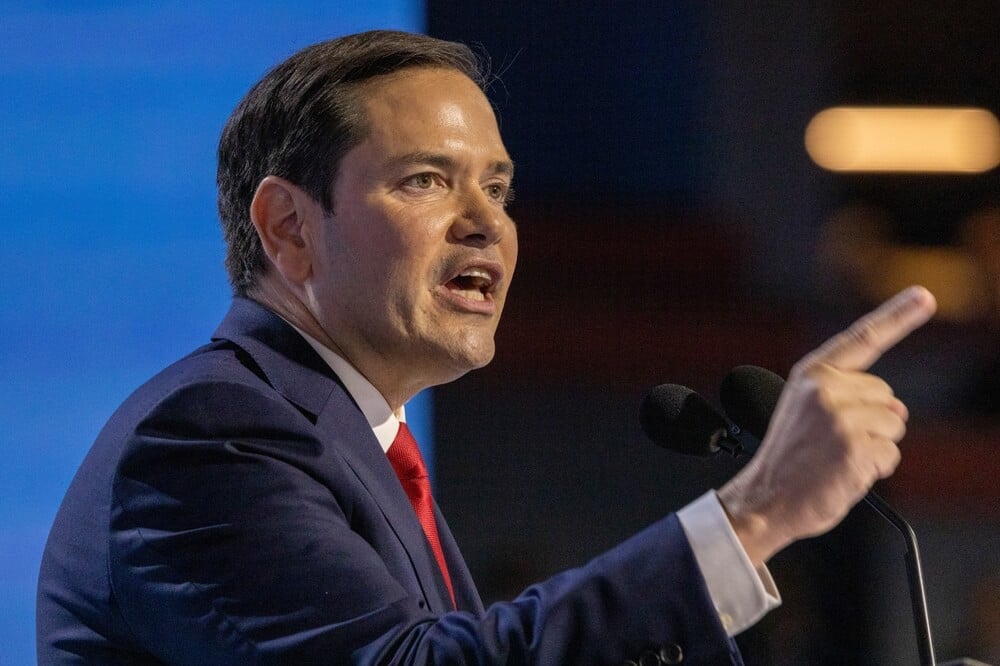One of the few points on which the outgoing and incoming US presidents, Joe Biden and Donald Trump, agree is their attitude towards Nicolas Maduro, who has just begun his third consecutive term in office with his inauguration.
After the contested July vote, he achieved his goal, consolidating his personal rule in a country with a collapsed economy and a mass number of refugees.
As the most influential international factor in Latin America, the US will maintain the continuity of its policy towards Maduro, who is one of the few who will remain untouched after the change of government when Trump takes office next week.
In the final days of his presidency, Joe Biden tightened the sanctions against the Maduro regime, including increasing the reward for his arrest. Additionally, Joe Biden added around 2,000 individuals from the establishment to the sanctions list for their severe civil rights violations and persecution of the political opposition.
Donald Trump will undoubtedly maintain these sanctions, and it is even possible that he will tighten them further. The administration will continue to treat Maduro's regime as a criminal entity deeply involved in drug trafficking.
Venezuela remains one of the priorities of the US
Overall, with Maduro beginning his third presidential term, Venezuela will be a top priority for US policy in Latin America, with a clear focus on his overthrow and the restoration of democratic institutions.
In his battle with illegal immigration to the US, Trump will close the corridors through which immigrants come. Furthermore, he will seek solutions to address the underlying causes of the mass exodus. In the case of Venezuela, where 7 to 8 million people have fled in the last decade, Maduro's rule is the root cause.
Donald Trump exerted maximum pressure on Maduro during his first term of office
The once-healthiest Latin American economy collapsed under Maduro's rule, and at the same time, widespread crime, drug trafficking, and human trafficking flourished, causing a mass exodus from the country that will continue during Maduro's third term in office.
Donald Trump exerted maximum pressure on Maduro during his first term of office, thereby exacerbating the policies of his predecessors. He called the Venezuelan head of state a "tyrant who brutalises his people." During the 2020 State of the Union speech, Trump declared, "But Maduro's grip on tyranny will be smashed and broken."
Maduro hopes for a softer approach
However, the Venezuelan authoritarian hopes that America will have a softer approach towards his rule. Last November, he congratulated Trump on his victory as an opportunity for a "new start." At the same time, he called on Trump to develop relationships characterised by "respect, common sense, dialogue, and understanding."
While these celebratory niceties were surprising as they depart from Maduro's usual strong anti-American rhetoric, they will not be a prelude to an easing of relations.
 Marco Rubio's tough stance towards the autocrats in Cuba, Venezuela, and Nicaragua leaves little room for expectations of an American-Venezuelan thaw.
Marco Rubio's tough stance towards the autocrats in Cuba, Venezuela, and Nicaragua leaves little room for expectations of an American-Venezuelan thaw.
Trump's selection of Marco Rubio, whose family is a descendant of Cuban refugees, as head of diplomacy further underscores this, but his tough stance towards the autocrats in Cuba, Venezuela, and Nicaragua leaves little room for expectations of an American-Venezuelan thaw. This holds true for as long as Maduro remains in office.
However, increasing pressure, particularly through the continuous expansion and tightening of sanctions, is proving to be an insufficiently effective means of toppling the Venezuelan leader. At the same time, the far-reaching sanctions, particularly in relation to the sale of oil, are keeping Venezuela's economy in a permanent crisis, which in turn is creating poverty, growing crime, and creating refugees.
One of the expected directions of Trump's new pressure is to intensify the fight against drug trafficking from South America to the US, in which Venezuela is an important link.
If this kind of pressure begins to bear fruit, it is quite possible that the criminal clans will exert more pressure on the Venezuelan leadership and thus weaken Maduro's regime.
US cooperation with regional powers
Even if it is less likely, there is still room for a slightly softer US policy towards Venezuela during Trump's term. It would follow the line that Joe Biden has partially implemented over the past four years, when he somewhat eased sanctions against the oil industry on the condition that there is progress in the democratic dialogue between the government and the opposition.
However, even such a course did not bring results and collapsed with Maduro's new electoral manipulation last July, when he declared victory despite convincing evidence that he had lost to the opposition candidate Edmundo González.
With even stronger repression against the opposition and its leaders in the post-election period, Maduro has left little room for the assumption that he is willing to loosen the restrictions of his personal rule.
Living in perpetual economic isolation, Venezuela under Maduro has only strengthened its ties with other autocratic regimes
Living in perpetual economic isolation, Venezuela under Maduro has only strengthened its ties with other autocratic regimes, particularly China, Russia, and Iran, over the past four years.
Wanting to establish himself even more firmly in that circle, Maduro also requested the admission of Venezuela to BRICS, but at last year's summit, Brazil, as one of the founders, vetoed the admission, which angered the government in Caracas.
Increasing cooperation between the new administration in Washington and regional governments such as Brazil, Colombia, and Mexico to jointly exert pressure on Maduro appears to be a possible new strategy of the US towards Venezuela, one that could have a greater impact than any previous strategy.